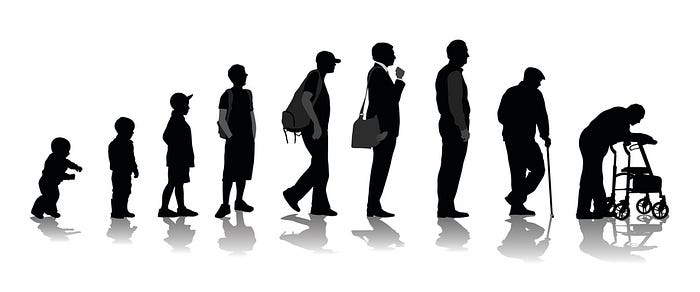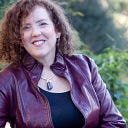Coming Soon: New observations on life as an adult, and what that means for communities
This is a selection from Future Here Now, a newsletter produced by the Wise Economy Workshop/ Wise Fool Press.
For a weekly supply of information that helps you prepare for the Fusion Economy in the place you care about, plus other benefits, subscribe to Future Here Now. You’ll be glad you did.
Some of the insights from this article in The Conversation about rethinking definitions of life may seem self-evident to you, especially when it comes to the life phase that you’re currently living in (mine elicited a “oh, hell yah!!” from me). But a lot of times our decisions, and especially our rules or policies, are based on old assumptions that don’t make sense anymore. If adulthood is different from what we assumed 30 years ago, shouldn’t at least some of our rules and policies be different too?
Let’s take a look at what this means — and most of these ideas are not things that haven’t been presented or discussed before, but I’m setting them in the context of what these new adulthood phases seem to look like.

- Why should we be at all surprised when people 30–45 don’t show up to public meetings, participate in online town halls, etc.? These folks are in the “career-and-care-crush,” as one psychologist put it. They’re hugely important to our communities — both because of their contributions and because of the support that they need our communities to provide. But they don’t get heard because we might as well have put that public meeting at the bottom of the sea. They can’t get there.
- 20-somethings tend to be somewhat discounted by traditional developmental psychology — the author refers to the old assumptions of that time period as an “extended adolescence.” That doesn’t fit very well today — education, technological expertise and mental flexibilty can make young adults the most valuable problem-solvers, but too often older adults default to some variant of “you’re too young to understand.” If we truly understood the value that younger adults can bring to the table, how would that transform our companies and organizations? Many of our accustomed hierarchies and chains of command would make absolutely no sense.
- The uncertainty and dependence that characterized people’s 60s, 70s and beyond for much of history largely doesn’t apply anymore, and instead they’re expected or required to continue to contribute. That could be a second career or job, volunteering, or simply being active in the world. No one, including people in this age group, approaches aging with an expectation that they will sit quietly in a rocking chair and be taken care of, in part because they could be in that role for decades.
- That also means that they will need to adapt to new work, new surroundings, new people and a new identity at a time when the brain has become inherently less neuroplastic. How do we equip older people to continue to grow mentally? To maintain the flexibility to assimilate new ideas and approaches?
- What does that mean for the availability — and the obligation — of continuing education? What is the proper role of experience, today?
The local Fusion Economy demands new approaches and new ideas, because we have come up against the limits of what our Industrial-era solutions can do. Check out The Fusion Era Will Impact Your Community: Here’s How to Survive and The Local Economy Revolution Has Arrived: What’s Changed and How You Can Help for more on these impacts. For guidance on doing meaningful public participation that engages people of all ages in a way that doesn’t make them cynical or angry, check out Online Public Engagement 3.0 and Crowdsourcing Wisdom: A Guide To Doing Public Meetings that Actually Make Your Community Better (and won’t make people wish they hadn’t come).







